Auschwitz was liberated 75 years ago today; one survivor tells his harrowing tale for posterity
Leon Sherman survived Auschwitz and was liberated in 1945.
The emotions come in waves for Leon Sherman.
On a sunny, winter day in Queens, New York, Sherman sits at his dining room table, with a blurred, blue tattoo still visible on his thinning inner arm: B2593.
It is the mark from a horrific chapter in his past -- surviving the notorious Nazi-run Auschwitz concentration camp and several others.
Jan. 27 marks the 75th anniversary of the liberation of Auschwitz, where Sherman endured beatings and starvation and witnessed murder after murder.
It's estimated that 1.3 million people -- mostly Jews -- were sent to Auschwitz between 1940 and 1945, according to the U.S. Holocaust Memorial Museum. Of those, at least 1.1 million were slaughtered. Overall, about 6 million Jews perished in the Holocaust.
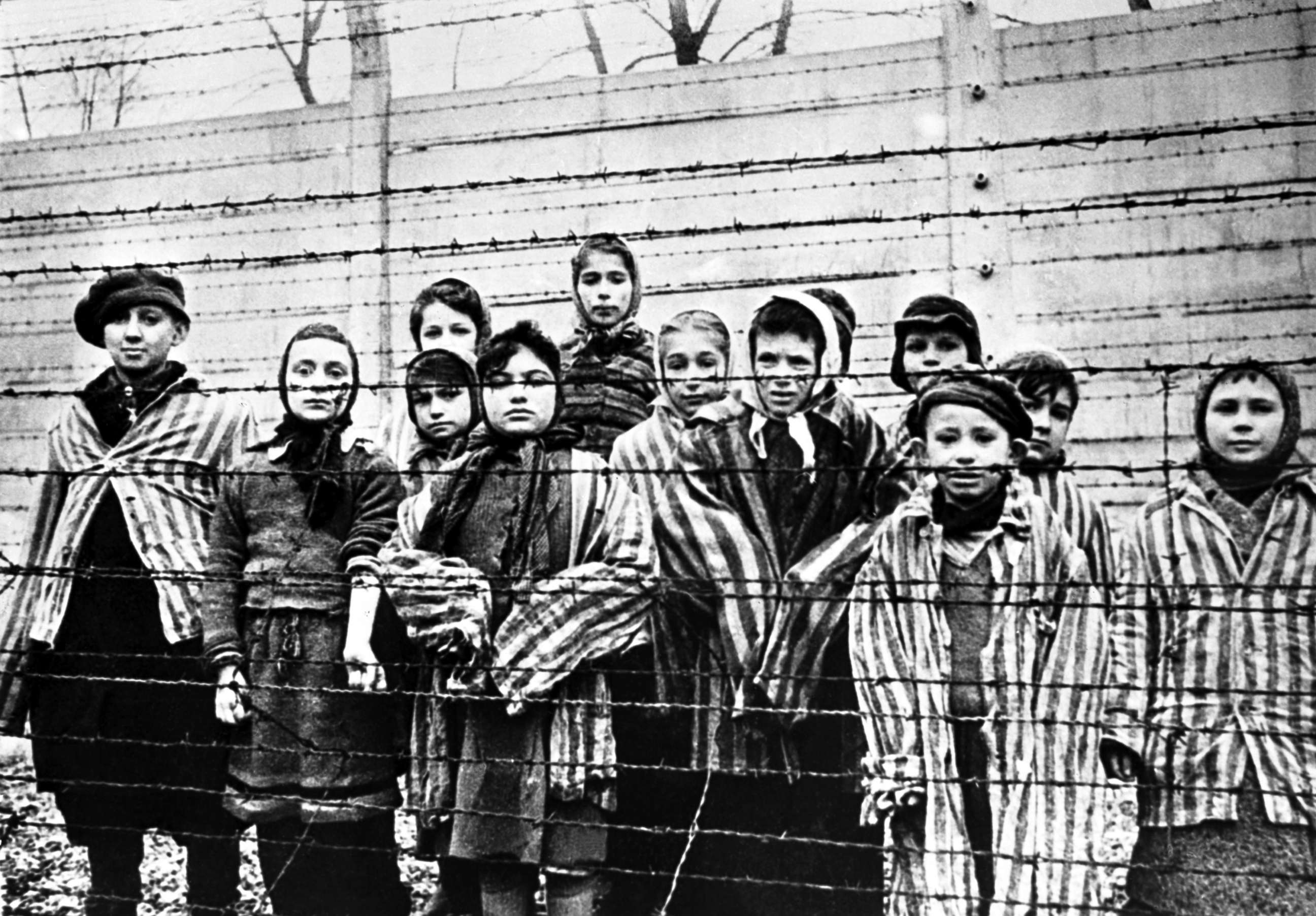
The Holocaust "mechanized transnational genocide. There simply is no precedent," said Jonathan Greenblatt, CEO of the Anti-Defamation League (ADL). "It's an issue that 75 years later the memory of that singular incident, the first-hand accounts of that singular incident, are fading."
"I feel I have to tell," Sherman told ABC News. "Because once we're gone, nobody will know."
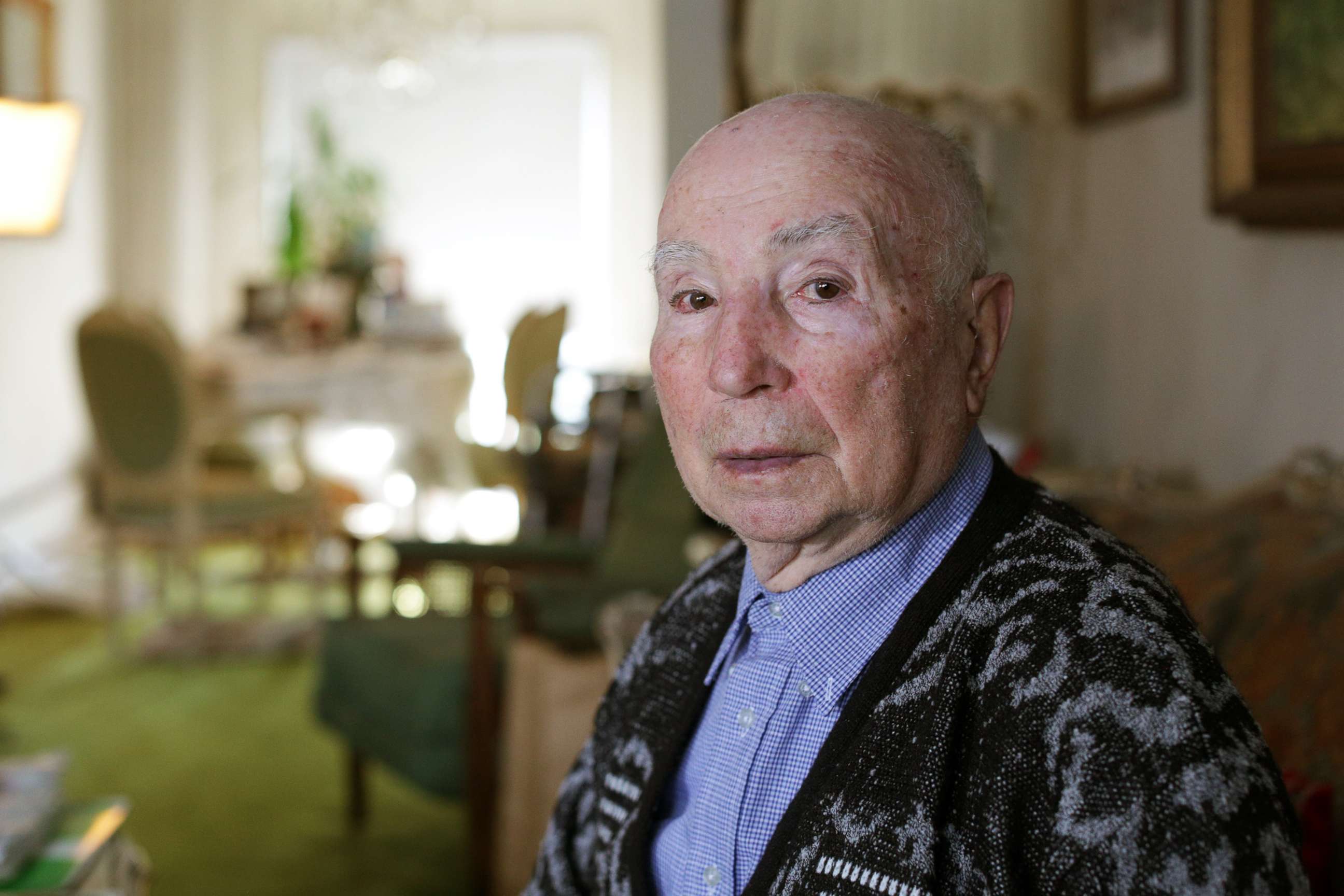
'If one run away, they shot 10 of us'
Sherman says he's 101 years old, but he may be younger: he said his mother lied about his age to make him older to get him a good job during the Nazi occupation. Documents he has from Germany say he is 100. He said he traveled to Poland after the war to create a birth certificate.
Sherman, a self-proclaimed "Momma's boy," grew up in Poland with his mother, sister and two brothers. His father died shortly before World War II.
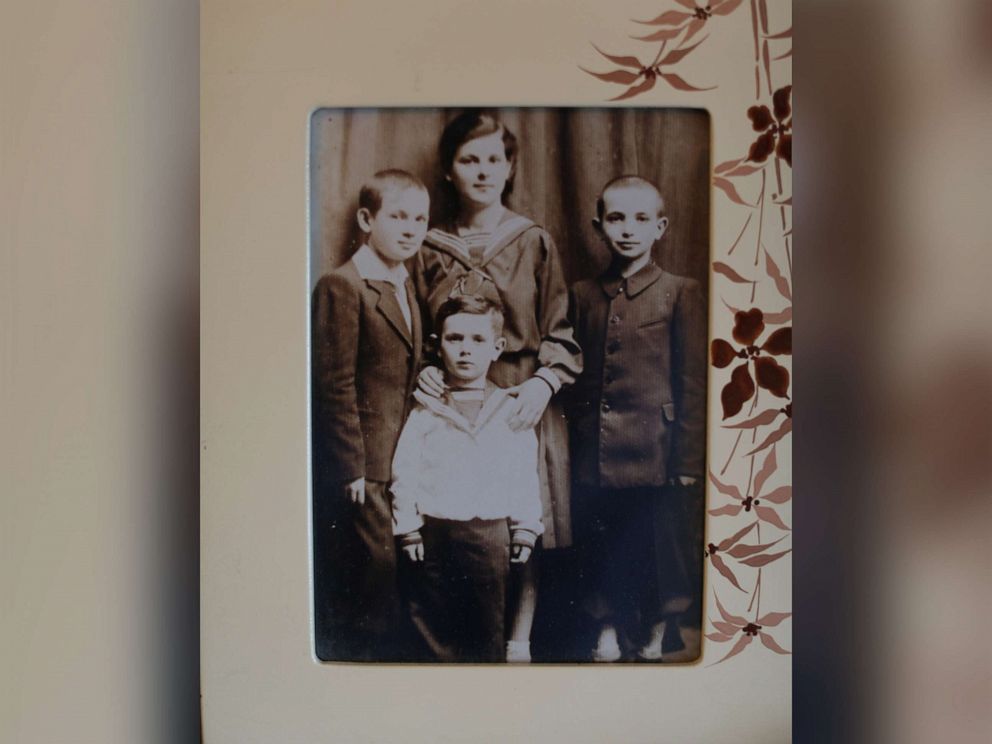
He loved learning and always had a book with him. But when the Germans invaded -- turning his town into a ghetto -- they immediately enforced new rules, like keeping Jewish children out of school and forbidding Jews to be out after 5 p.m
One of his neighbors, who'd been out after 5 p.m. was summoned to an office where he was killed, Sherman said, his eyes welling up.
"He left a child, maybe 3 years old, a wife," Sherman said. "It was very scary... to kill a Jew was nothing."
The ghetto was oppressive, with limited food and no facilities. He said they endured constant beatings and searches for any items of value that could be confiscated.
Sherman was soon separated from his family. His mother was sent to the Treblinka extermination camp and he was sent to the Blizyn concentration camp.
"When they unloaded us, they hit you over the head, didn't give you the time to think," Sherman said.
"In Blizyn, if one run away, they shot 10 of us,'" he recalled, as he choked back tears. "The boys begged, they kissed their feet [and asked], 'Please, let us live longer.'"
'We knew what they were doing in Auschwitz'
Sherman said he arrived in Auschwitz in May 1944, where they were unloaded "like cattle" and whipped.
"We knew that was the end," he said. "We knew what they were doing in Auschwitz. But you couldn't run away."
They were shaved, stripped and taken to the showers -- where he was terrified he'd be gassed.
"When we saw water, we were relieved," Sherman said.
He'd kept pictures of his brother and mother with him throughout the war, and when he reached the Auschwitz shower, he tucked the photos into his shoes.
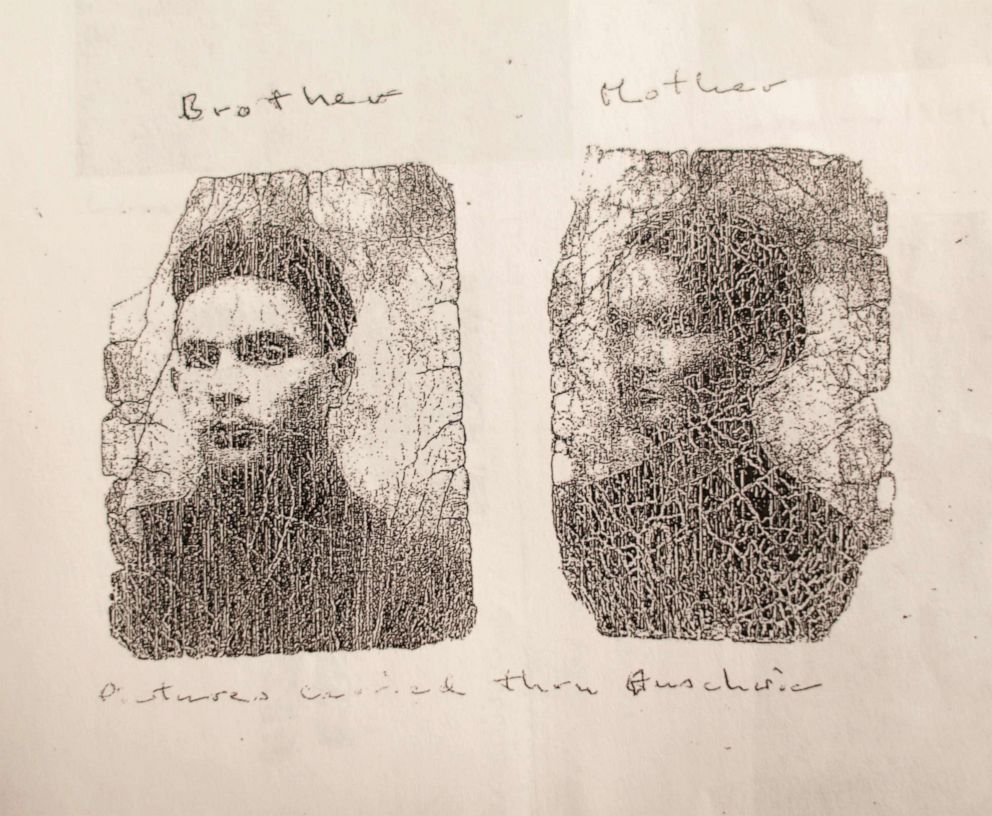
Once all the prisoners had come through the shower, the Nazis blew a whistle to summon them into the camp.
Sherman said he still can't stand the sound of whistles.
Prisoners were selected for jobs and Sherman patiently watched others get picked.
"I wanted to go with my destiny," he said. "God was watching over me."
Sherman said at first he was assigned a job chopping stones, similar to what Anne Frank's father, Otto did at one point during his time there.
Then he was sent to build a railroad extension closer to the crematorium -- because those who arrived at the camp sick were sent directly to the gas chamber.
That also gave Sherman an up-close look at the ditch next to the crematorium where Jews were dumped out of trucks and burned alive.
Sherman said he'd hear the screams and smell the flesh.
"If a kid tried to creep out [from the fire], they'd put him back with a rifle butt," he said.
"You couldn't complain to nobody... nobody to cry to," Sherman said, describing Auschwitz as "like a jungle."
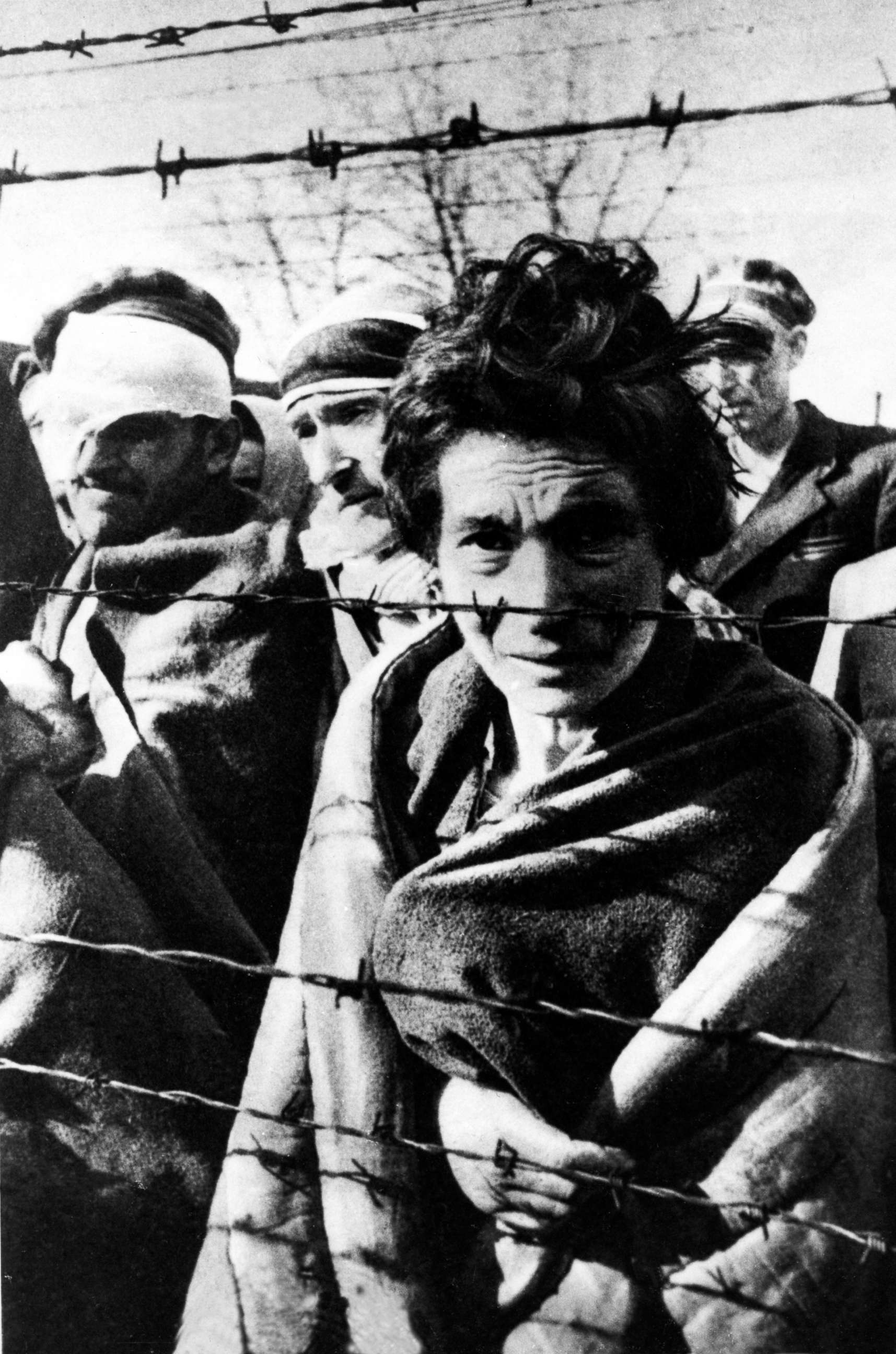
"One day they'd say 'inspection is coming, make the blankets even.' One guy was missing a button on his jacket. They killed him for this," Sherman said, tearing up.
Liberation
When the Soviet Army neared in the winter of 1944-1945, the Nazis started evacuating those in Auschwitz -- including Sherman -- and he was sent to other concentration camps.
"In this camp, Dachau, we didn't have facilities to wash at all. We had lice, a lot of lice biting us," Sherman said.
They'd wrap paper around their feet to keep warm and slept on straw "like cows," he said.
By this point, "we were immune to hunger... they made us eat grass if they didn't have bread to give us."
He said he saw one boy "risk his life" by taking leftover dog food from a Nazi dog.
"They wanted to finish us off anyway," he said.
As Allied troops moved closer, Sherman was sent on an 8 to 10 day "death march," or forced evacuation of concentration camps.
That's when he said he was liberated. Auschwitz was liberated by Soviet forces on Jan. 27, 1945.
Sherman -- who had survived several concentration camps with no serious physical injuries -- moved to the United States in 1949.
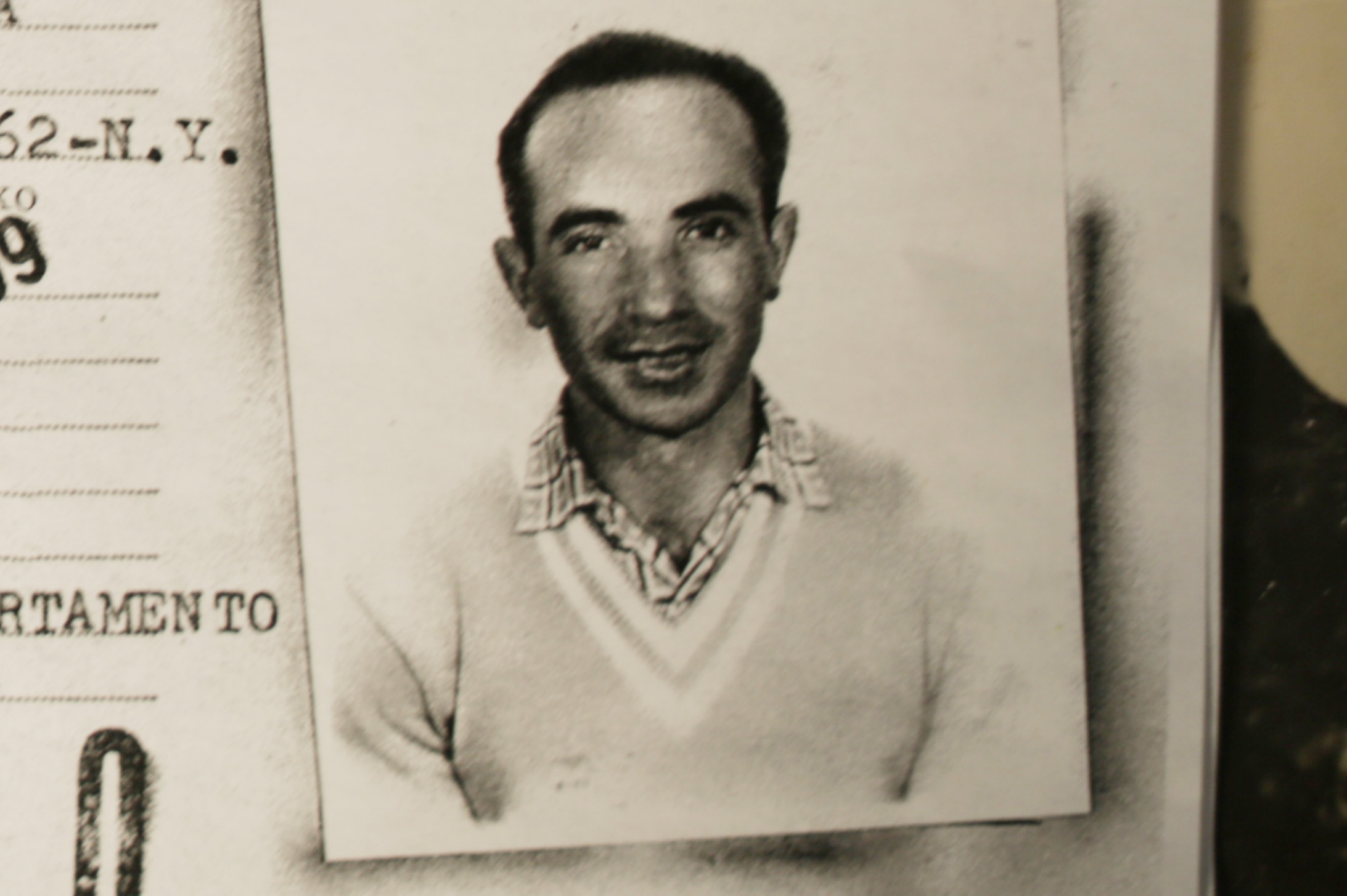
He made his living working at a garment center, met his wife, Anna, in New York and settled in Queens. His wife died several years ago.
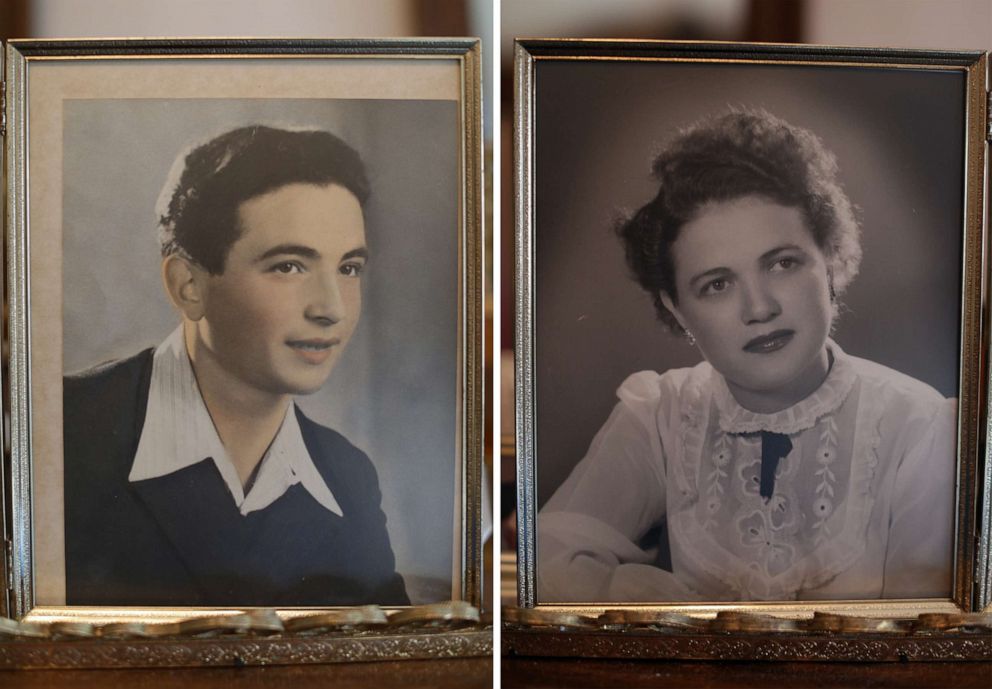
The Shermans didn't have children, but after the war, Sherman and some fellow survivors became "like family." One of his brothers survived the war and moved to Argentina. He died a few years ago, Sherman said.
Hate on the rise
This milestone anniversary for Auschwitz comes amid a rise in anti-Semitic expressions in the U.S.
The current threat environment is "alarming," said John Cohen, an ABC News contributor and former acting undersecretary at the Department of Homeland Security.
In October 2018, 11 worshipers, including a 97-year-old woman, were shot dead at a Pittsburgh synagogue. Six months later, a woman was gunned down at a synagogue in San Diego County.
Just last month, a group of Hasidic Jews were gathered at a rabbi's house in New York to celebrate Hanukkah when a machete-wielding man forced his way inside, slashing six people.
From 2001 to 2015, anti-Semitic incidents were on the decline, according to Greenblatt, the CEO of the Anti-Defamation League.
That changed in 2016, when incidents spiked 34%, he said. Then in 2017, the year of the Charlottesville attack -- during the largest white supremacy rally in 15 years -- "we saw the largest spike we'd ever observed -- a 57% surge," Greenblatt said.
The ADL said its most recent audit of anti-Semitic incidents found more than 1,800 acts in 2018, the third highest total in 40 years.
'Antidote to intolerance'
What's especially dangerous now is the power of the internet, said Cohen.
"In the past white supremacists were geographically isolated," Cohen said, but now they "consume that material online and communicate with like-minded people across the globe and receive a sense of empowerment and validation for their angry or violent behavior."
"Holocaust denialism, it is the original fake news," Greenblatt told ABC News. "It's prevalence in places like social media have become so pronounced... it's simply a manifestation of antisemitism."
"The fact of the Holocaust is as real as the laws of gravity," Greenblatt said. "I think the 75th anniversary of the liberation of Auschwitz is an opportunity for world leaders, for people in public life, not only to speak out strongly against the rise in antisemitism... but to contextualize the Holocaust and how its lessons need to stay with us."
Sherman went back to Auschwitz once, to mark one of the anniversaries. He showed his wife his bed in the barrack where he'd slept.
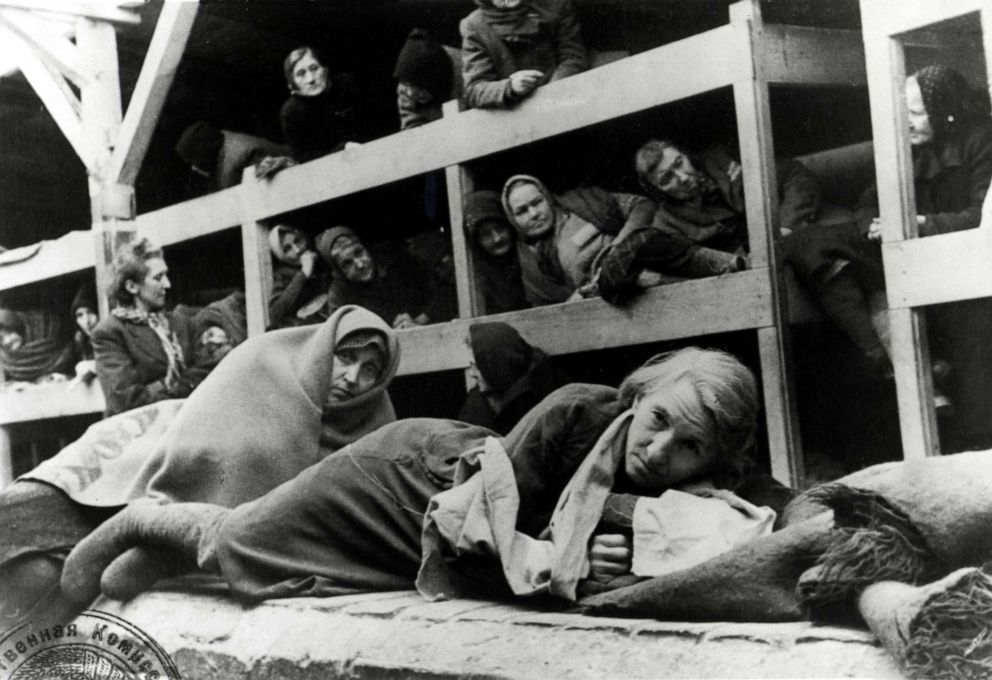
"When I talk to you about Auschwitz, I remember like now," Sherman said.
"How can you forget when you see a child, 3 years old, being shot... it's like a film in my head."
ABC News' JP Keenan, Jeff Costello and Amari Mitchell contributed to this report.




